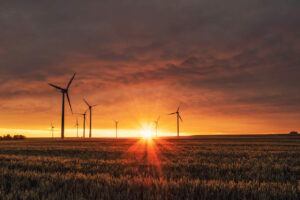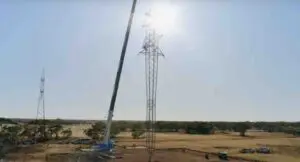Solar, wind and battery storage have set new output records in Texas – the country’s biggest electricity consumer – as the state’s thermal fleet was massively depleted because of planned and unplanned outages.
Local analysts say there were 25 gigawatts (GW) of coal and gas unavailable on March 20, and for much of the past week, due to a mix of scheduled maintenance and breakdowns. To put that into context, that is more capacity than in Australia’s entire coal fleet (when it is operating).
It was an opportunity for wind, solar and battery storage to display their wares. Solar dominated in the daytime, setting a new output record of more than 26 GW, and meeting 56 per cent of the demand on the local grid, known as Ercot (Energy Reliability Council of Texas).
That record beat the previous milestone by more than 1,300 MW, and came just a few days after wind and solar combined to set a new output record of nearly 40 GW, or 40,000 MW.
A few days later, on March 25, battery storage – which is growing rapidly – delivered more than 5.6 GW into the evening peak, meeting more than 10 per cent of demand, replicating recent achievements in the South Australia and Western Australia grids, but at a much bigger scale.
“What do you do on a mild spring day when 26 GW plus of thermal generation is offline for maintenance?” asked Jonathon Blackburn, energy analyst and commissioner of the Electric Utility Commission in Austin, Texas. “If you’re in Texas, you let the sun, wind, and batteries take the lead.”
The spring is sure to deliver more records in Texas, and California, where battery storage is heading towards maximum output of more than 10 GW for the first time. In California, the big batteries are meeting one third of demand in the evening peak.
“These batteries didn’t just break records – they helped keep the grid stable, avoided emergencies, and quietly proved their value,” Blackburn notes. “Spring has sprung, and so has the future of power in Ercot.”
Unfortunately, spring is not the only thing to have sprung, so too have proposed new laws that could inhibit the roll out of more wind, solar and storage, and effectively protect the fossil fuel interests in Texas.
“What do you do when renewables are beating fossil fuels in Texas’s free market?” Blackburn asks. “If you’re the Texas Senate, you abandon capitalism, attack private property rights, and introduce SB 819 — a bill that socializes methane costs while punishing low-cost, market-driven clean energy.”
He describes SB 819 as one of the most anti-energy, anti-business, anti-property rights bills ever proposed in Texas, and says it targets renewables with burdensome, one sided regulations, blocks new resources, and undermines the state’s competitive market. “It props up aging gas generators that can’t compete on cost,” he says.







